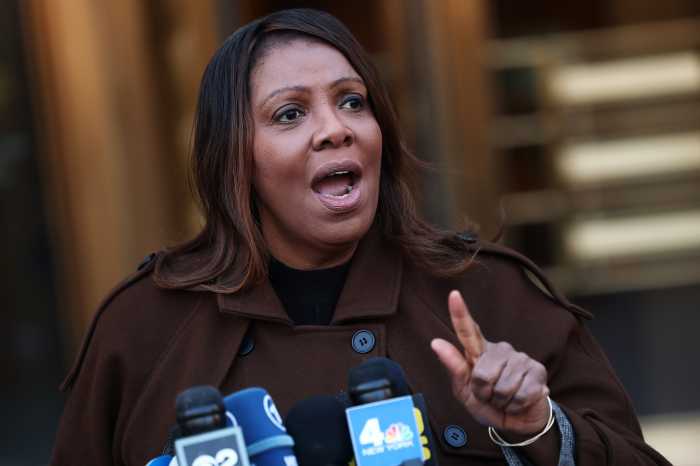Two instances of national upheaval on the African continent present starkly different options to the West in terms of interventionist designs. On the one hand there is the unfolding drama of large-scale human suffering brought on by the drought and famine in Somalia. And then there’s Libya, where certain of the Western powers apparently didn’t need much by way of justification to intervene on the side of forces opposed to Muammar Gaddafi. It seems clear that the kind of resolve that resulted in those NATO bombing raids and other measures aimed at toppling the Gaddafi regime far outstrips, to this point, the collective determination of the West to respond to a staggering toll of tens of thousands of deaths in Somalia, the numbers threatening to rise exponentially, deepening the horror, with each passing day. Reports claim that more than 500,000 children are on the brink of starvation.
All things considered, the sense of priorities here is of course way out of whack. That the ravages of Somalia’s famine-induced decimation apparently have tugged at the international community’s heart strings to a lesser degree than the goings-on in Libya is sobering reality. Last month it was left to a regional director of Oxfam, the world renowned relief organization, to declare: “The world has been slow to recognize the severity of this crisis, but there is no longer any excuse for inaction.”
As if being dealt Mother Nature’s lethal hand of severe drought weren’t enough, Somalia has had its wretchedness exacerbated on two other fronts, both man-made. The country has been pretty much in “failed state” mode since 1991, when the government of Mohamed Siad Barre, who had been its leader since 1969, collapsed. In intervening years, among contenders for a controlling stake in the power vacuum was the Islamist group al Shabab, an outfit said to be aligned with or with allegiance to, al Qaeda. Because al Shabab controls most of southern Somalia, where the drought has been most devastating, there have been reports of al Shabab’s intimidation of both native Somalis attempting to flee the region and those outsiders who have tried to bring relief to the food-deprived population. Indeed, the reputedly strongly anti-Western al Shabab imposed a ban two years ago on most international aid organizations seeking to enter the part of Somalia it controlled, the ban lifted only last month.
But Somalia has obviously been dangerous territory for its natives as well as intrepid and dedicated foreigners. The World Food Program has lost 14 relief workers there since 2008 (al Shabab reportedly killed many more) and understandably seeks all kinds of guarantees for the safety of its people before committing them to further service there. Meanwhile, because the U.S. State Department had declared al Shabab a terrorist organization in 2008, it became a crime to provide material assistance to them. That embargo was only recently relaxed, in the face of the epic tragedy that has now befallen the country.
Last month, in Britain’s Guardian, Oxfam, via a spokesman, was reported complaining about the international community’s less than robust response to Somalia’s plight. It was said that of the $1 billion needed to avert untold disaster, only $200 million had been pledged. And an accusation was leveled against several European nations, including France, Italy and Norway, of “willful neglect” of a crisis, “that has been known about for months.”
In recent days, though, there has definitely been a spike of interest in the unfolding Somali disaster on the part of major media (CBS and CNN, for example), and one expects this to do much to tip the scales for the sort of response Somalia’s suffering deserves. But that volley fired at France for not, at least up to that time, rising to the occasion, cannot but invite comparison with French President Nicholas Sarkozy’s Johnny-on-the-spot role in badgering other world leaders to get busy with the Gaddafi “takeout” action.
Sarkozy would continue as pied piper in the anti-Gaddafi movement, rushing to confer legitimacy on a bunch of Libyan rebels who probably remain as much of a puzzlement today as they ever were. Every so often, it seems there’s some occurrence on the rebel side of the Libyan conflict that raises a question or two about the alleged sanctity of cause resident there. Not to mention that there are those yet convinced that the charge of al Qaeda elements being on board with the anti-Gaddafi rabble rousers has never been disproved.
From America’s standpoint, how this country treats with these two issues on African soil – in Libya and Somalia — ranks well below what’s considered front-burner priority for the administration at this time. The administration did follow France in recognizing the rebels in Libya as the official Libyan authority. And while economic considerations now dwarf policy moves vis a vis Libya on the scale of priorities, it will only add to the president’s problems if the actions taken leave the administration open for a pile-on of criticism there as well, to add to the already tricky waters Obama has had lately to navigate.
Not for the first time in similar narratives, those who have bled from early for this Somali nightmare have had to make their case for attention. It’s just unfortunate that Libya’s unrest provided us with a graphic reminder of what always more readily commands the gaze of the powers that be.


























